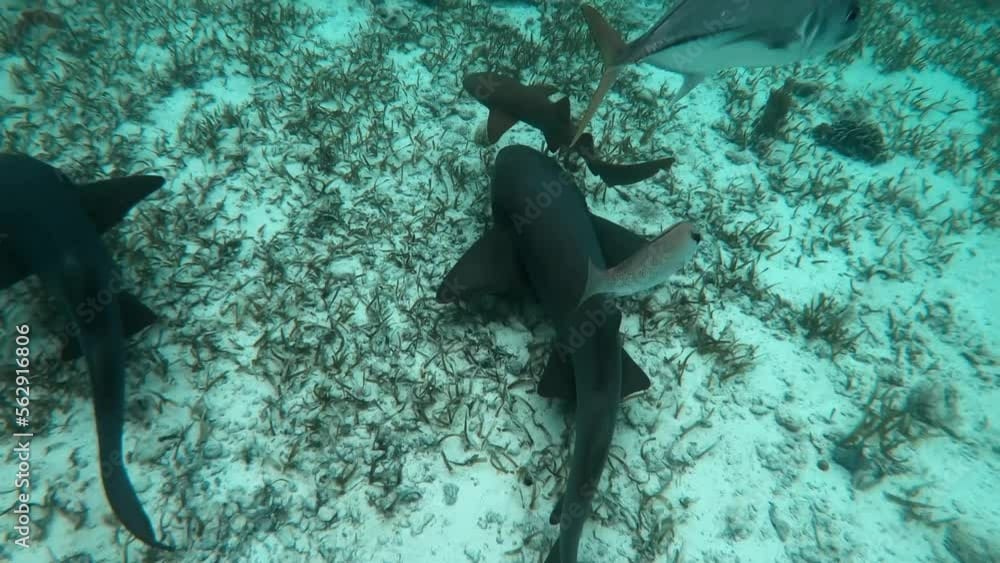The coastal waters of Brazil have become a focal point of an unusual environmental phenomenon: sharks contaminated with cocaine. This unexpected development illustrates the complex interplay between drug trafficking, pollution, and marine ecosystems. Recent research has equipped scientists with alarming data, revealing that certain species of sharks are not only becoming vessels for drug residues but are also indicators of broader environmental issues stemming from human activities.
In an age marked by increasing environmental concerns, the discovery of cocaine in sharks compels us to examine the ramifications of illicit drug trade on wildlife. According to studies conducted by researchers from the Federal University of Rio de Janeiro and the University of Florida, tissue samples from sharks caught in Brazilian waters contained traces of cocaine and other illicit substances. This disturbing finding has sparked discussions about the implications for marine life and the health of ocean ecosystems.
Sharks have long been essential components of marine environments, playing crucial roles in maintaining the balance of species below them in the food chain. However, the presence of cocaine in these apex predators raises questions about their health, behavior, and survival. The study conducted along the coastline of Brazil aimed to quantify the amount of drugs found in these sharks, revealing surprising levels that suggest contaminated waters may affect these animals’ physiology.
The sources of this oceanic pollution are directly tied to the extensive drug trafficking networks operating in South America, particularly in Brazil, which serves as a transit hub for cocaine smuggled to global markets. As the demand for cocaine continues, so does the infrastructure of these illegal operations. The illicit substances are often discarded or washed into rivers and coastal areas, where they ultimately find their way into marine ecosystems.
This situation is not unique to Brazil. Similar incidents have been reported in other regions where drug trafficking has surged. In recent years, there have been documented cases of drugs entering riverine and marine environments in various countries as law enforcement agencies continue to grapple with the challenges of intercepting these illicit shipments. The ramifications extend beyond just the presence of drugs; they encompass the broader issue of water quality and its impact on biodiversity.
The contamination of sharks with cocaine poses significant health risks, not just to the sharks themselves but to the larger marine ecosystem as well. These powerful predators have elaborate processing systems designed to filter out toxins and contaminants from their bodies. However, the introduction of drugs into their systems can disrupt their natural behaviors. Altered hunting patterns, diminished reproductive capabilities, and weakened immune responses are just a few of the potential consequences of cocained-infused species.
Moreover, the phenomenon has sparked concerns for human health. The presence of cocaine in marine species poses a potential risk to humans who consume seafood from affected areas. While the immediate health risks for casual seafood consumers may appear low, the long-term consequences of consuming contaminated fish can lead to significant health issues. Monitoring and regulation of seafood marketed for human consumption are therefore critical.
Scientists emphasize the importance of addressing the underlying issues contributing to this environmental crisis. Efforts to combat drug trafficking and enhance policing and regulatory measures can help mitigate pollution in Brazil’s coastal waters. Additionally, education and outreach programs aimed at raising public awareness are vital. Optionally, creating alternative livelihoods for communities reliant on the drug trade may offer long-term solutions to this multifaceted problem.
It is crucial to note that the plight of sharks in Brazil is reflective of broader global issues concerning pollution and environmental degradation. Ocean health is intricately linked to human health, economies, and overall biodiversity. As such, the presence of cocaine in their systems serves as a potent symbol of the consequences of human actions on natural environments.
Looking forward, researchers underscore the importance of continued monitoring and studying the effects of pollutant exposure on marine life. The findings from Brazil serve as a harbinger for what can happen when human activities intersect destructively with nature. Policymakers, conservationists, and communities must work collaboratively to foster sustainable practices that recognize the interdependence of human health and environmental integrity.
As this unusual tale of cocaine-laden sharks unfolds, it illustrates more than just a strange occurrence. It emphasizes the alarming consequences of ocean pollution and reminds society of the responsibility to protect marine ecosystems. Encouraging responsible practices, advocating for cleaner seas, and taking steps to combat illegal drug trafficking are essential to ensure a healthier future for both human and marine populations alike. The shocking revelation of cocaine in sharks serves as a clarion call to address pollution at its source, ultimately safeguarding the oceans that have long been viewed as an untouchable expanse of nature.
